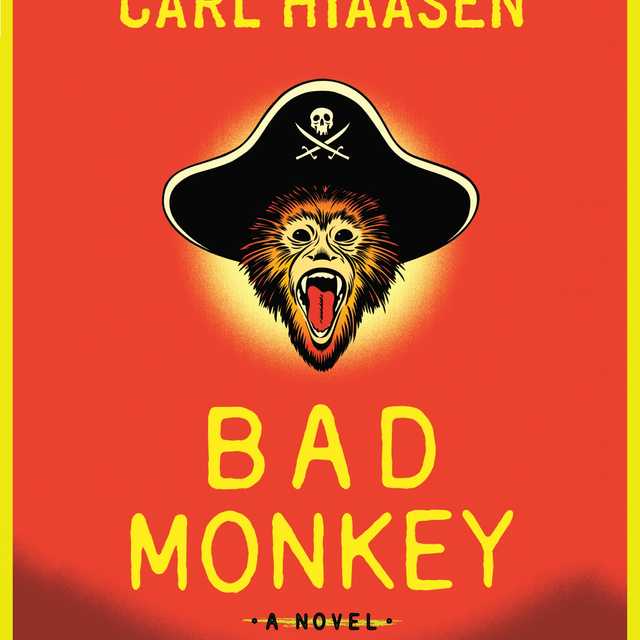American Titan Audiobook Summary
From the veteran New York Times bestselling biographer comes a major, in-depth look at one of the most enduring American icons of all time, “the Duke,” John Wayne.
As he did in his bestselling biographies of Jimmy Stewart and Clint Eastwood, acclaimed Hollywood biographer Marc Eliot digs deep beneath the myth in this revealing look at the most legendary Western film hero of all time; the man with the distinctive voice, walk, and demeanor who was an inspiration to many and a symbol of American masculinity, power, and patriotism.
Eliot pays tribute to the man and the myth, identifying and analyzing the many interesting contradictions that made John Wayne who he was: an Academy Award-winning actor associated with cowboys and soldiers who didn’t like horses and never served in a war; a Republican icon who voted for Democrats Roosevelt and Truman; a white man often accused of racism who married three Mexican wives. Here are stories of the movies he made famous as well as numerous friends and legendary colleagues such as John Ford, Maureen O’Hara, Natalie Wood, and Dean Martin.
A top box-office draw for more than three decades–starring in 142 films from Stagecoach and True Grit, for which he won the Oscar to The Quiet Man and The Green Berets–John Wayne’s life and career paralleled nearly the entire twentieth century, from the Depression through World War II to the upheavals of the 1960s. Setting his life within the sweeping political and social transformations that defined the nation, Eliot’s masterful portrait of the man they called Duke is a remarkable in depth look at a life and the “American Century” itself.
Other Top Audiobooks
American Titan Audiobook Narrator
Pete Larkin is the narrator of American Titan audiobook that was written by Marc Eliot
Marc Eliot is the New York Times bestselling author of more than two dozen books on popular culture, among them the highly acclaimed Cary Grant, the award-winning Walt Disney: Hollywood’s Dark Prince, and American Rebel: The Life of Clint Eastwood. His work has been published in more than twenty-five languages, and he writes for a number of publications and frequently speaks about film to universities and film groups, and on radio and television.
About the Author(s) of American Titan
Marc Eliot is the author of American Titan
More From the Same
- Author : Marc Eliot
- The Hag
- Steve McQueen
- American Rebel
- Reagan
- Charlton Heston
- Publisher : HarperAudio
- Abraham
- American Gods [TV Tie-In]
- Dead Ringer
- House of Sand and Fog
- Prey
American Titan Full Details
| Narrator | Pete Larkin |
| Length | 12 hours 31 minutes |
| Author | Marc Eliot |
| Category | |
| Publisher | HarperAudio |
| Release date | November 04, 2014 |
| ISBN | 9780062378286 |
Subjects
The publisher of the American Titan is HarperAudio. includes the following subjects: The BISAC Subject Code is Biography & Autobiography, Rich & Famous
Additional info
The publisher of the American Titan is HarperAudio. The imprint is HarperAudio. It is supplied by HarperAudio. The ISBN-13 is 9780062378286.
Global Availability
This book is only available in the United States.
Goodreads Reviews
Ron
February 07, 2018
What a great book for those who want to know about the life, both professional and personal of one of the most famous of American actors. But the book is more than that. It is a history of the American film industry from about 1930 until Wayne died in 1979 - production companies who went in and out of business, directors, other famous actors, movie production costs and earnings. How many of them were alcoholics (like Wayne) or who died of lung cancer; who liked who and who didn't. I learned a lot from this book. Covers Wayne's 3 failed marriages and his mistress before he died.
Bill
December 09, 2017
If I was critical of this biography I would say it contains many typos and drew a few conclusions that seemed to be based on opinion. But I enjoyed reading it, as it gave some key insights into what was going on in his life as he was making these movies. It turns out he was flawed just like you and me, his wealth and popularity perhaps enabling his to a greater extent. This version was sufficiently different from others I’ve read and it was easy to pickup to continue reading each day. Note that 27% of the book is bibliography and notes.
Jim
October 25, 2021
There has never been as paradoxical a film actor as John Wayne. He embodied the American Male and the American Century like no other film star, yet never wore a military uniform (except in the movies) and excoriated those that avoided serving in a misguided and morally questionable conflict such as the Vietnam War. To many, he represented the antiquated and racist view of the West as the home of the Indian savage, the enemies of American’s Manifest Destiny, while in reality he was married three times to Hispanic women from Mexico. His later films embraced and respected indigenous peoples and, after all, Ethan Edwards WAS just a character after all.Politically, he was a conservative Republican through and through. but who voted for FDR and Harry Truman and was adamant that he always “voted for the man” and not for certain political parties. He was the embodiment of the Macho Male of his time that did not embrace feminism in any way, but always treated his women co-stars on-screen with deference, respect, and even an endearing degree of shyness. He was also a bull of a man who inexplicably moved with a graceful physical ease that was truly unique to the Duke.Marion Robert Morrison was born on May 26, 1907 in Winterset, Iowa into a fairly loving family with a amiable father (a son of a Civil War veteran BTW) who just couldn’t make a successful go at much of anything. After a futile attempt at small farming, the family moved to Southern CA. to Glendale in 1916. Little Marion got his lifetime nickname of Duke from a beloved family dog, a huge Airedale terrier. His mother was much more distant, and Marion’s younger brother Richard was clearly the favorite child of their matriarch.The young Marion was an excellent athlete and excelled at numerous sports in high school and ended up attending the University of Southern California (USC) on a football scholarship. He suffered a broken collarbone which ended his athletic aspirations and caused the loss of his scholarship which also resulted in his withdrawal from USC. That injury was a star-crossed (literally) occurrence which would change the history of Hollywood and the cultural zeitgeist of the countryThe young man was many things in his handsome youth. However, he was NOT an overnight success. He managed to find work in the newly burgeoning Hollywood; doing everything from moving sets and props, to carpentry and electrical work, to even a bit of miscellaneous stunt work.Then one day, moving furniture on-set at the ripe old age of 23, established director Raoul Walsh ”discovered” the strapping young man with the chiseled features and promptly cast him in his early talkie Western spectacle "The Big Trail." Walsh was also responsible for changing the young man’s name from the somewhat wimpy sounding Marion Morrison to the rock-solid star name of JOHN WAYNE. The name evolved from Walsh’s respect for revolutionary war hero Mad Anthony Wayne, who was also the namesake for Fort Wayne, IN, which was the site of his military heroics.Unfortunately for the young Wayne’s fledgling film career, Mr. Walsh paid much more attention to the sweeping vistas and the impressive location shooting of his western epic than he did his stars and their characters, and the movie was a huge flop.It also relegated Mr. Wayne to nearly a decade of B Western purgatory on Hollywood’s Poverty Row in a period in which he made nearly 100 forgettable “oaters” before he was “discovered” once again in 1939 by the already legendary director John Ford in the classic saga "Stagecoach," which basically set the template for the cinematic western genre. The zoom shot of the arrival of Wayne’s character the “Ringo Kid” (as surprisingly out of focus as it is) is one of the most, if not THE, most famous star-making intro shots in American cinema history. The film also established the beautiful and stark Monument Valley outdoor locale of Utah and Arizona as an unforgettable and important icon of American Western film.John Wayne was on his way finally as a young leading man (at the age of 32!) and would quickly become a contemporary of Gary Cooper, Jimmy Stewart, Henry Fonda, Errol Flynn, etc. and; sooner than later, he would eclipse them all in popularity and box office receipts.The 1940’s saw the ascendancy of Mr. Wayne to the highest echelons of Hollywood super-stardom. He did quite a bit of forgettable stuff during the earlier part of the decade and at this time, he also engaged in several passionate affairs with his female co-stars: Claire Trevor (carried over from "Stagecoach"), Marlene Dietrich (they did three films together – 1940’s "Seven Sinners" and 1942’s "The Spoilers" & "Pittsburgh"), and Gail Russell ("The Angel and the Badman") from 1947. Few, if any, male co-stars escaped the clutches of Ms. Dietrich if she was so inclined, and she was so inclined with John Wayne. They entered a torrid two-year relationship that ended when she cast him aside for a new conquest; as she did with all her romantic entanglements.He really hit his stride as a leading man and a top-of-the-heap major star with hugely popular hits including the jingoistic "Sands of Iwo Jima" (1949), Howard Hawks’ classic western Red River (1948) in which Wayne played a much older character for the first time, and the first two installments of John Ford’s lauded “cavalry trilogy” with "Fort Apache" (1948), "She Wore A Yellow Ribbon" (1949) in which he again played a much-older character, and completed with 1950’s "Rio Grande."The 1950’s were full of huge critical and commercial successes for the Duke, but he was involved with as many misfires as hits. His personal and professional relationship with Ford (“Pappy”) was cinematically fruitful, but much more convoluted off-screen. They jointly created 1952’s "The Quiet Man" (usually viewers either really “love” this film or really “dislike” this film, with not much in-between), 1956’s "The Searchers" (the creative and critical apex of the Ford/Wayne collaborations), and 1959’s "The Horse Soldiers" (fair to middlin’). These films also coincided with Ford’s escalating alcoholism, his creative decline, and his increasingly sadist bullying of Wayne.The decade included additional huge commercial successes with "Hondo" (1953), "The High and the Mighty" (1954), and what may be the best Wayne film of them all; Howard Hawks’ "Rio Bravo" (1959). As well as strangely quixotic failures such as "Big Jim McClain" (1952) a blatant red-baiting flop with his young buddy & future star Jim Arness, "The Conqueror" (1956) about Genghis Khan of all people, "The Barbarian and the Geisha" (1958) the less said, the better, and "Legend of the Lost" (1957) which involved wandering around the desert with Sophia Loren with lots of sand and even more boredom."The Searchers" was initially received lukewarmly by critics of the time and was not the Duke’s biggest box office success. However, it has, over time, become a very important and influential work of American cinema that is universally revered by future filmmakers and critics alike. Mr. Wayne’s portrayal as the virulent racist loner Ethan Edwards is unquestionably the best acting portrayal of his long career. It’s a crime he was not honored with a Best Actor Oscar for the role, and it’s an even bigger embarrassment that he wasn’t even nominated. At that point, he had only been nominated once before for "Sands of Iwo Jima." Two scenes of "The Searchers" are arguably the most majestic of all America cinema – when Wayne sweeps a young Natalie Wood into his arms and, instead of killing her in a racist rage, he says softly, “Let’s go home, Debbie.”And the legendary final laconic scene, in which Wayne, framed in the doorway of the prairie home of his brother’s family, his left arm crossed across his torso grasping his right arm (a conscious homage to one of his early Western heroes and mentors, Harry Carey) followed by his lonely, existential walk away from civilization and domesticated life, into the dusty Western horizon representing both unlimited potential and, more pointedly, the achingly sad loneliness of the perennial society outsider. That film and Wayne’s character, both good and bad, vividly represent the America of the 20th century.At the same time, the overly conservative decade of the 1950’s involved the most troublesome and disappointing period of the Duke’s career for myself and many of his most ardent fans. The mid-century paranoid Cold War and political communist Red Scare, fueled by such demagogues and political opportunists as Richard Nixon and Joseph McCarthy, was a dangerous period that challenged our democratic ideals.Scarily, very similar to the current political and societal situation we are now facing as a growing national crisis.The Duke, along with Ward Bond and nasty newspaper celebrity gossip monger Hedda Hopper, were the worst in Hollywood as far as aggressively cooperating with the House Un-American Activities Committee (HUAC) and their unsavory methods of hunting supposed Bolsheviks in Hollywood. Many, many successful careers were damaged and destroyed due to the studio-imposed Blacklist of named artists that were linked as current or previous members of the Communist party. It was a horrible time in the film industry in which friends turned on friends and lives were destroyed.He was a founding member of the Motion Picture Alliance for the Preservation of American Ideals, which focused on an obsessive and active attack on the left, and he became president of the group in 1949. I do believe he genuinely felt he was doing his duty as a patriotic American in fighting the Red Menace, but it is still, after all these years, very disappointing that he was so virulently involved in such a misguided effort to deprive honest Americans of their constitutional rights.Once again, sadly, there are many corollaries to today’s political climate. It’s just a different type of “witch-hunt.”However, none of this unfortunate political activity seemed to damage the Duke’s box-office popularity. He was voted the most popular star in America by movie exhibitors in l950, l951, and in l954.As the turbulent 60’s arrived, Mr. Wayne was settling into more mature, middle-aged roles and finally brought to fruition his long-time dream of bringing the story of Davy Crockett and the Battle of the Alamo to the big-screen. He was producer, director, and the ill-fitting leading man as Crockett. Unfortunately, "The Alamo" was a box-office and critical failure, and virtually bankrupted the box-office champ and his film production company Batjac.He rather quickly regained his footing economically, but was soon to face the biggest challenge of his life. The long-time smoker was diagnosed with lung cancer in 1964 and was hospitalized while his left lung was removed. His big “comeback” film was the hugely popular "The Sons of Katie Elder" (1965). Even though the big guy had to use oxygen between takes.The prolific star made a total of 30 more films in the 60’s & 70’s. Most were memorable and very entertaining, and some were not so much. His cinematic highlight in this period was certainly his Oscar-winning turn as Rooster Cogburn in Henry Hathaway’s huge box-office smash "True Grit" (1969). Beginning with the aforementioned film, I was lucky enough to see all of his big-screen movies in the theater except, ironically, for his final two films; "Rooster Cogburn" and "The Shootist."He became quite controversial as the 60’s progressed into the 70’s and his stance toward the Vietnam War became more intractable and his popularity plunged with young people. His jingoistic film "The Green Berets" (1968) was painfully out-of-step and just a downright bad movie. Even though some of his views became quite unpopular as he aged and as times changed, you always felt he genuinely believed what he said and that it came from a truly patriotic and loyal stance in defense of his country, however misguided.Wayne’s undeniable durability as a box-office champion spanned a generation, from l949 to l974, regardless of changes in the political, social, and cultural context of the times. One joke in the industry was that Presidents and Administrations have come and gone, but Wayne was still at the top. Indeed, in the early l950’s, Wayne was on the movie star popularity poll with Cooper, Gable, Tracy, and Stewart, and in the late l950’s, with William Holden, Burt Lancaster, Glenn Ford, and Marlon Brando.Players appeared and disappeared from the poll quite rapidly, but he remained. In the early l960’s, Wayne remained an immensely popular star along with Rock Hudson, Jack Lemmon, and Paul Newman, and later in the decade, his star company included another set of actors–Sean Connery, Lee Marvin, and Steve McQueen. And in the l970’s, Wayne was joined by yet another generation of actors consisting of Dustin Hoffman, Robert Redford, Clint Eastwood, and Charles Bronson.His marriages were troubled, but he was a loyal friend to lifetime buddies, was a gentle and loving father to several children, and sadly succumbed to cancer when it re-surfaced. Mr. Wayne died on His unforgettable final appearance at the Oscars occurred earlier that year and he was clearly close to death. That scene is seared into my memory and was one of the most courageous public acts I’ve ever seen from a celebrity of any kind. It was a fitting finale for a man of integrity, loyalty, decency, and yes – True Grit.This biography by well-known celebrity biographer Marc Eliot is immensely entertaining and full of interesting anecdotes and little-known tidbits. The words flew off the page and it was a pleasure of a read in which I learned a lot about a man that I already knew quite a bit about.Highly recommended, especially for fans.
Sandra
September 11, 2021
I enjoyed reading in detail about his family history and early years breaking into films. The author goes into great detail about some of the movie plots. He does have errors in his book. Wayne is a complicated mix of assertiveness in many business situations and submissive to Ford and to his wives. He doesn't want his divorces, but is never faithful and is often unhappy in his marriages. He is a loyal generous friend. His sense of humor and willingness to befriend people with whom he has opposite views makes him very likable. He did prove to be a good actor in some of his films. The author never discusses Wayne's relationships with his children, but some of them worked with him. Were they close? No idea. That is a flaw in the book. What are his feelings toward his wives and children? I enjoyed the book. He is not perfect, no one is. He has many admirable qualities and achievements.He is a movie legend--deservedly so.
Deanna
September 23, 2021
My grandfather loved John Wayne movies, and the fact that Wayne never enlisted or served in the armed forces during WWII never bothered my grandpa, who had been taken POW by the Germans at the Bulge. Eliot pulls no punches; Duke's early life and contentious relationship with his mother are laid bare, as are his struggles to become a respected actor ("I don't act; I react"), and his later indiscretions with women and money. The patriotism when it wasn't cool, the steadfastness when it wasn't appreciated, the loyalty to friends when it wasn't valued.I guess I think Hollywood could use more John Wayne and less Mark Ruffalo.
William
May 13, 2017
I like biographies and I have always liked John Wayne movies. I think my favorite is The Quiet Man. I was recently in Ireland and saw the statue of John Wayne and Maureen O'Hara in the town of Cong. The book gave an interesting and enjoyable insight into the life and career of the man. The author has written other biographies I hope to read in the future.
Rose
February 22, 2017
Very subjective account of his good and bad sides without being judgy. LOTS of plot descriptions in great detail about his movies. Maybe a little too much but it did remind me of some of his better ones.
Brian
March 22, 2022
Well-researched and entertaining bio of the Duke.
Timothy Meier
December 19, 2020
Great book
Shirley
July 01, 2018
I really enjoyed reading about John Wayne's life. I have watched most of his movies and certainly enjoyed them.
Carl
May 07, 2015
The author of other biographies—Cary Grant, Walt Disney: Hollywood's Dark Prince, and American Rebel: The Life of Clint Eastwood, to cite just three—Eliot is perfectly positioned to write a biography of John Wayne. He knows Wayne's era well and makes a credible case for viewing him an actor auteur, largely responsible for his performances no matter who directed him or what studio employed him. However, in some places Eliot does not consider that it may have been Wayne's directors learning from other directors about how to shoot the actor as much as it was Wayne himself determining his screen image. Thus, Howard Hawks in guiding Wayne through his performance in Red River was mindful of John Ford's treatment of the actor in several classic Westerns. Eliot also sometimes neglects the role of the supporting cast in building Wayne's image (a notable example is Walter Brennan's work as narrator and Wayne sidekick in Red River and Rio Bravo). The main question is whether to purchase Eliot when Scott Eyman has just published John Wayne, a revisionist biography along the same lines as Eliot's. Certainly any collection devoted to Hollywood film needs both books, but Eyman's is the better of the two
Raquel
October 17, 2014
3.5 stars out of 5. Not quite 4 but I figured I'd round up. I received this book from the Goodreads First Reads program. Thank you Goodreads and Del Street Books!Read my full review here: http://www.outofthepastblog.com/2014/...American Titan: Searching for John Wayne is my fourth Marc Eliot biography. I've read his books on Cary Grant, Jimmy Stewart and Steve McQueen (and my husband reviewed his book on Michael Douglas). Eliot’s bios have always proven to be informative and entertaining. They’re not definitive or exhaustive rather they paint a picture through story-telling. Eliot refers to this book as a “revisionist biography” of John Wayne. He says, “I wanted to examine him from an auteurist point of view, to put the emphasis on his work, to show how the films reflected his personal life, and how in turn, he reflected himself in his films.”Eliot focus' on Wayne's career, his relationships especially with John Ford and Wayne's three wives Josephine, Chata and Pilar, his business decisions (including financial problems), his health and his politics.I enjoy Marc Eliot's biographies but I feel like I've outgrown them. I recommend this to anyone who is interested in John Wayne but doesn't necessarily want to study him.
Luke
August 18, 2015
I did enjoy this biography of The Duke. The focus here is mostly on his acting work and what influenced and shaped his career. The author attempts to apply the auteur theory to Wayne's work and discusses his relationship with John Ford and Howard Hawks. His personal life is covered but not dwelled upon in a gossipy scandalous way. After reading this I did feel like even if one were to read every biography of The Duke you still really wouldn't understand who the man was in whole.
Most Popular Audiobooks
Frequently asked questions
Listening to audiobooks not only easy, it is also very convenient. You can listen to audiobooks on almost every device. From your laptop to your smart phone or even a smart speaker like Apple HomePod or even Alexa. Here’s how you can get started listening to audiobooks.
- 1. Download your favorite audiobook app such as Speechify.
- 2. Sign up for an account.
- 3. Browse the library for the best audiobooks and select the first one for free
- 4. Download the audiobook file to your device
- 5. Open the Speechify audiobook app and select the audiobook you want to listen to.
- 6. Adjust the playback speed and other settings to your preference.
- 7. Press play and enjoy!
While you can listen to the bestsellers on almost any device, and preferences may vary, generally smart phones are offer the most convenience factor. You could be working out, grocery shopping, or even watching your dog in the dog park on a Saturday morning.
However, most audiobook apps work across multiple devices so you can pick up that riveting new Stephen King book you started at the dog park, back on your laptop when you get back home.
Speechify is one of the best apps for audiobooks. The pricing structure is the most competitive in the market and the app is easy to use. It features the best sellers and award winning authors. Listen to your favorite books or discover new ones and listen to real voice actors read to you. Getting started is easy, the first book is free.
Research showcasing the brain health benefits of reading on a regular basis is wide-ranging and undeniable. However, research comparing the benefits of reading vs listening is much more sparse. According to professor of psychology and author Dr. Kristen Willeumier, though, there is good reason to believe that the reading experience provided by audiobooks offers many of the same brain benefits as reading a physical book.
Audiobooks are recordings of books that are read aloud by a professional voice actor. The recordings are typically available for purchase and download in digital formats such as MP3, WMA, or AAC. They can also be streamed from online services like Speechify, Audible, AppleBooks, or Spotify.
You simply download the app onto your smart phone, create your account, and in Speechify, you can choose your first book, from our vast library of best-sellers and classics, to read for free.
Audiobooks, like real books can add up over time. Here’s where you can listen to audiobooks for free. Speechify let’s you read your first best seller for free. Apart from that, we have a vast selection of free audiobooks that you can enjoy. Get the same rich experience no matter if the book was free or not.
It depends. Yes, there are free audiobooks and paid audiobooks. Speechify offers a blend of both!
It varies. The easiest way depends on a few things. The app and service you use, which device, and platform. Speechify is the easiest way to listen to audiobooks. Downloading the app is quick. It is not a large app and does not eat up space on your iPhone or Android device.
Listening to audiobooks on your smart phone, with Speechify, is the easiest way to listen to audiobooks.

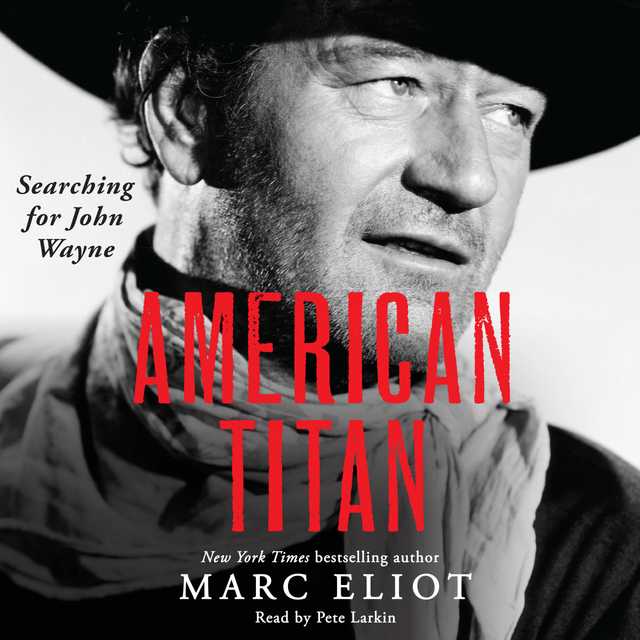









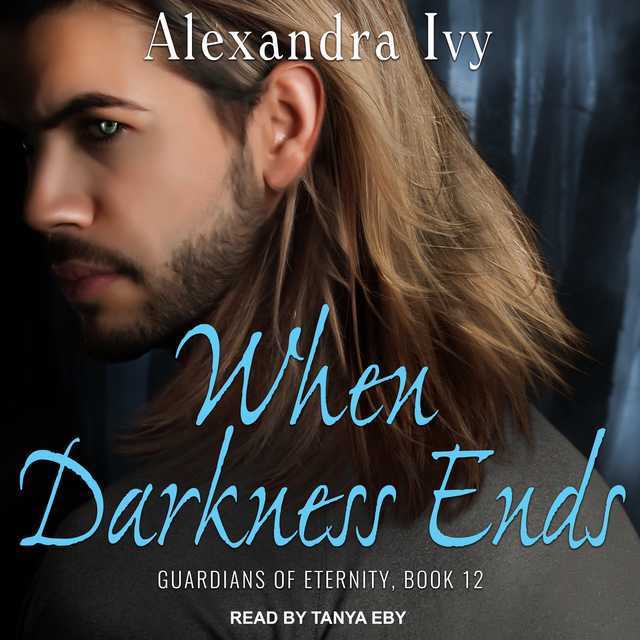
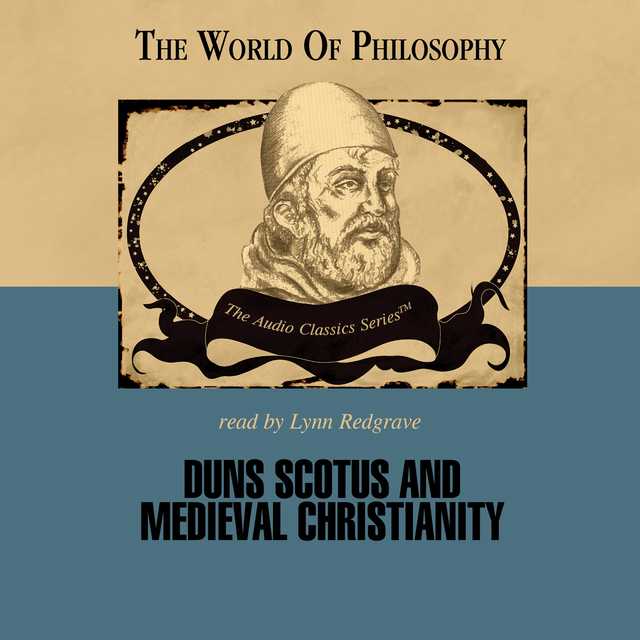
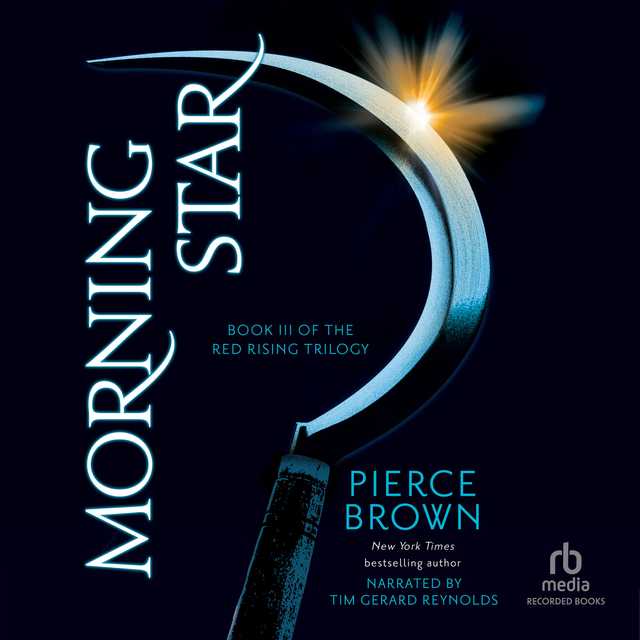
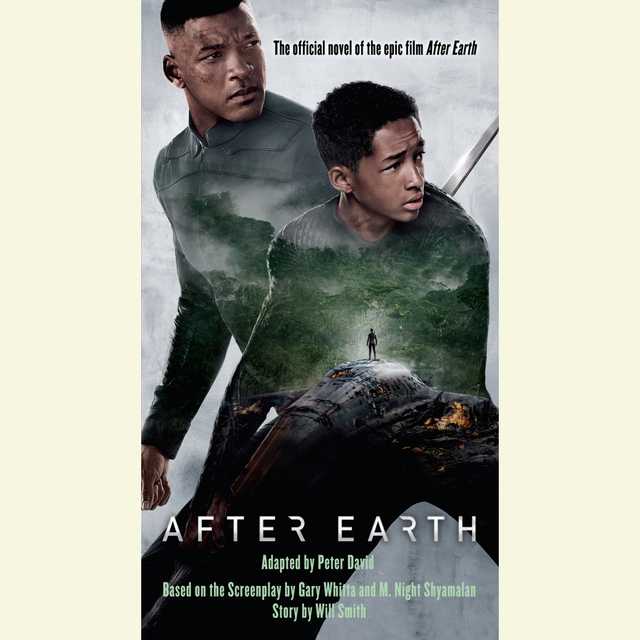

![Vampire Hunter D: Volume 6 – Pilgrimage of the Sacred and the Profane [Dramatized Adaptation]](https://speechify.com/audiobooks/wp-content/uploads/sites/29/2023/06/pr_eaudio_9781685087449_640px.jpg)
